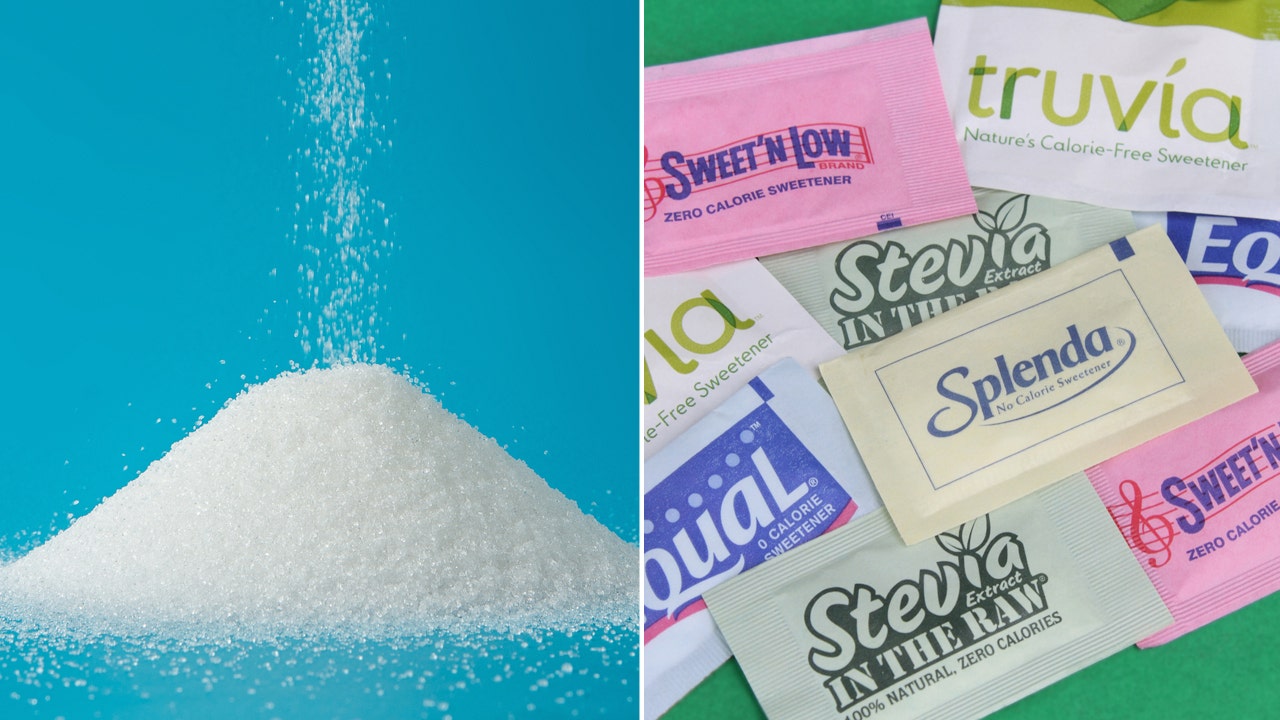Sugar versus Artificial Sweeteners: A Health Conundrum
The debate on whether sugar or artificial sweeteners are healthier is both intriguing and confusing. However, experts agree that these products have become ubiquitous in our food supply. “You can find both regular sugar and artificial sweeteners everywhere, from the grocery store to the neighborhood café,” says Amy S. Margulies, a registered dietitian and health and wellness coach. These tempting sweeteners are used in a variety of products, including diet drinks, desserts, yogurt, chewing gum, and baked goods.
Although these sweeteners are widely used, recent headlines have raised concerns about their safety. So, which is better for your health – sugar or artificial sweeteners? Let’s dig deeper.
Sugar, also known as sucrose, is a natural sweetener derived from sugar cane or sugar beets. It provides four calories per gram and can cause a rapid spike in blood sugar levels. The American Heart Association recommends limiting added sugar intake to 6 teaspoons (25 grams) for women and 9 teaspoons (38 grams) for men per day.
Artificial sweeteners, such as aspartame and sucralose, are low-calorie or zero-calorie sugar substitutes. These sweeteners are often used as alternatives to sugar because they provide intense sweetness without the added calories. “The specific nutrition specifications vary depending on the type of artificial sweetener,” says Margulies. Overall, artificial sweeteners provide minimal or no calories and have negligible effects on blood sugar levels.
When comparing calories and sugar content, there are some differences between regular sugar and artificial sweeteners. One packet of sugar contains 10 calories and 3 grams of carbohydrate (or sugar). On the other hand, one packet of Splenda contains 2 calories and 0.5 grams of carbohydrate, one packet of Equal contains 4 calories and 0.9 grams of carbohydrate, and one packet of Truvia contains 1 calorie and 3 grams of carbohydrate.
The acceptable daily intake of aspartame, one of the most common artificial sweeteners, is 40 milligrams per kilogram of body weight, according to the Joint Expert Committee on Food Additives (JECFA). The Food and Drug Administration offers a slightly higher acceptable daily intake of 50 milligrams per kilogram of body weight.
Determining which is worse – sugar or artificial sweeteners – is not straightforward. It depends on individual factors and consumption patterns. Excessive consumption of sugar can lead to weight gain, tooth decay, and an increased risk of chronic diseases. On the other hand, artificial sweeteners have been extensively studied and considered safe for consumption by regulatory authorities. However, there are concerns about potential adverse effects, such as gastrointestinal issues and an impact on gut microbiota, associated with high intakes of certain artificial sweeteners. Sucralose, for example, has been linked to increased appetite, reduced good bacteria in the gut, inflammation, obesity, and diabetes in some studies. Yet, more research is needed to validate these claims fully.
Ultimately, the choice between sugar and artificial sweeteners should be based on individual preferences, health goals, and moderation. It’s important to note that relying solely on artificial sweeteners as a substitute for a balanced diet can hinder the development of healthy eating habits.
In general, it is advisable to limit both sugar-sweetened foods and beverages and artificial sweeteners for better health. If you choose to use sugar, keeping it to one packet per drink is reasonable, and two packets for more than one cup is a good limit. Alternatively, gradually reducing your desired level of sweetness or exploring more nutritious alternatives like honey or maple syrup can be beneficial.
While the verdict is still out on which is worse, it’s important to make informed choices based on moderation and individual needs. As with all things related to health, balance is key.
Denial of responsibility! VigourTimes is an automatic aggregator of Global media. In each content, the hyperlink to the primary source is specified. All trademarks belong to their rightful owners, and all materials to their authors. For any complaint, please reach us at – [email protected]. We will take necessary action within 24 hours.


